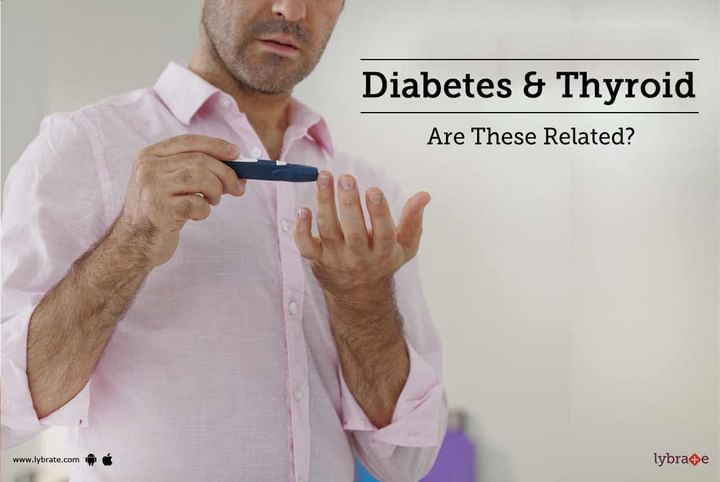Diabetes & Thyroid - Are These Related?
Diabetes and thyroid disorders are the two most common problems affecting people since ages. Diabetes, as is known to all, is a medical condition whereby the body fails to synthesize insulin, a type commonly known as Type-1 diabetes. In another type of diabetes, known as Type-2 diabetes, the body may become insulin resistant. This disorder of the endocrine system can wreak havoc, giving rise to a host of health complications and medical conditions if not treated and managed on time.
The Thyroid hormones (produced by the thyroid glands) play a significant role in various metabolic pathways of the body. Certain conditions (stress, obesity, diseases, medications, to name a few) can affect the production of thyroid hormones, thereby interfering with the normal body activities and metabolic processes. While Increased production of thyroid hormones (T3, T4, TSH) results in Hyperthyroidism, reduced production can give rise to Hypothyroidism. LIke Diabetes, Thyroid diseases also have the potential to throw life in jeopardy if the absence of timely management and treatment.
Are diabetes and thyroid problem interrelated?
This question has baffled scientists and researchers for long. Various studies and research establish a relationship between Diabetes and Thyroid disorders. The Beta cells (Islets of Langerhans) of the Pancreas are responsible for the insulin production, while the thyroid hormones are produced by the thyroid glands. Both the pancreas and the thyroid glands are part of the endocrine system. A scientific paper published in the Journal Of diabetic Research states that the level of the thyroid hormones in the body is directly related to the insulin secretion. An overproduction of thyroid hormones trigger the Beta cells of the pancreases to produce insulin in an increased amount (resulting in Hyperglycemia). On the other hand, a decreased production of thyroid hormones (Hypothyroidism) gives rise to a reduced insulin production by the Beta cells triggering Hypoglycemia.
Some studies also suggest that people with Type-1 Diabetes (an autoimmune condition) is more likely to suffer from Thyroid problems and disorders. In fact, thyroid problems can make the condition more severe, resulting in serious health complications. Thyroid problems may also occur in Type-2 diabetic patients, especially women. However, the extent of damage may be less severe as compared to those with Type-1 diabetes. In this context, it is important to mention that people with low levels of thyroid hormones are likely to suffer from Type-2 diabetes, particularly in pre-diabetic patients.
Thus, it is important that people with diabetes or thyroid problems should get undergo regular medical check-ups and screening tests to avoid any complications. According to the American Diabetes Association, every diabetes patients (especially Type-1) should undergo the thyroid tests (T3 test, T4 test, TSH test) once in every 2 years, even if their thyroid levels are within the normal range.
Though diabetes and thyroid problems are interconnected, proper management can go a long way to keep both the conditions well under control.



+1.svg)
